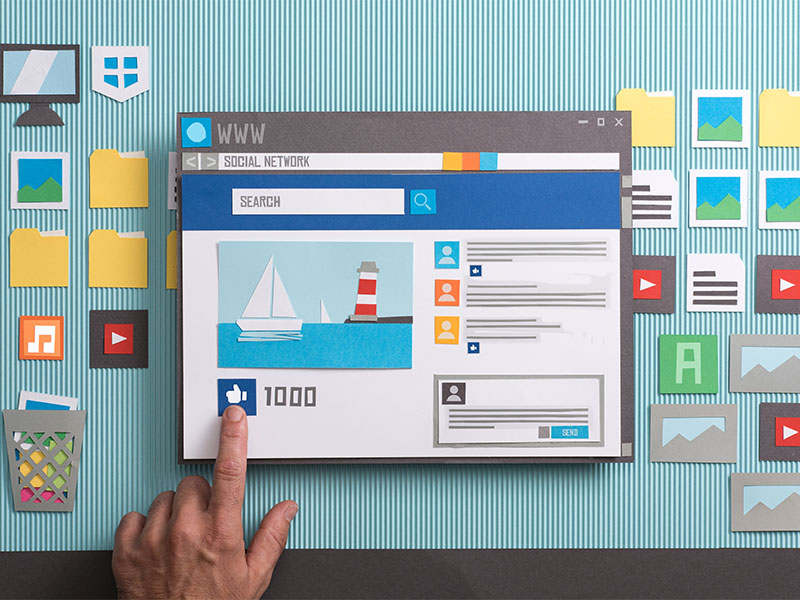
In today’s digital age, user experience (UX) design has become a crucial aspect of website and app development. User experience encompasses the overall experience that a user has while interacting with a product or service, including factors such as usability, accessibility, and satisfaction. Effective UX design can make the difference between a successful, user-friendly website and one that frustrates and alienates its users. In this comprehensive guide, we will delve into the fundamental principles of user experience design, exploring key concepts, best practices, and practical tips to help you create exceptional user experiences. Let’s embark on a journey to master User Experience Design Principles and elevate your digital projects to new heights of success.
- Understanding User Experience Design:
User experience design is the process of enhancing user satisfaction by improving the usability, accessibility, and overall experience of a product or service. It involves understanding the needs, preferences, and behaviors of users and designing solutions that meet their needs effectively. A successful user experience design considers the entire user journey, from the initial interaction to task completion, and aims to create seamless and intuitive experiences that delight users and drive engagement.
2. Human-Centered Design Approach:
At the core of user experience design is the principle of human-centered design, which prioritizes the needs, behaviors, and preferences of users throughout the design process. This approach involves conducting user research, gathering feedback, and iteratively testing and refining designs to ensure they meet the needs of users effectively. By placing users at the center of the design process, designers can create products and services that are intuitive, usable, and enjoyable to use.

3. Usability Principles:
Usability is a key aspect of user experience design, focusing on how easy and efficient it is for users to accomplish their goals with a product or service. The following principles are fundamental to creating usable designs:
- Learnability: Designs should be easy for users to learn and understand, allowing them to quickly become proficient in using the product or service.
- Efficiency: Designs should enable users to accomplish tasks quickly and with minimal effort, reducing friction and frustration.
- Memorability: Designs should be memorable, allowing users to easily recall how to use the product or service after periods of non-use.
- Error Prevention: Designs should anticipate and prevent errors, guiding users towards successful outcomes and providing clear feedback in case of mistakes.

4. Accessibility Considerations:

Accessibility is another critical aspect of user experience design, ensuring that products and services are usable by people of all abilities, including those with disabilities. Designing for accessibility involves considering factors such as:
- Perceivability: Ensuring that content is presented in a way that can be perceived by users, regardless of their sensory abilities.
- Operability: Ensuring that all interactive elements are operable using a variety of input methods, including keyboard navigation and screen readers.
- Understandability: Ensuring that content and functionality are presented clearly and understandably, avoiding jargon and complexity.
- Robustness: Ensuring that designs are robust and compatible with a wide range of assistive technologies and devices.
Visit: tips for ecommerce website development
5. Visual Design Principles:

Visual design plays a crucial role in shaping the overall user experience, influencing factors such as aesthetics, branding, and emotional engagement. The following principles are essential for creating visually appealing and effective designs:
- Consistency: Designs should be consistent across all elements, including colors, typography, and layout, to create a cohesive and unified experience.
- Hierarchy: Designs should use visual hierarchy to prioritize content and guide users’ attention towards the most important elements on the page.
- Contrast: Designs should use contrast effectively to highlight important elements and create visual interest, making it easier for users to scan and understand content.
- Space: Designs should use white space effectively to create balance, clarity, and breathing room around elements, reducing visual clutter and enhancing readability. Stay ahead of the curve in the digital landscape – trust our digital marketing company in India to guide your growth!

6. Interactive Design Principles:
Interactive design focuses on how users interact with a product or service, including factors such as navigation, feedback, and responsiveness. The following principles are essential for creating effective interactive designs:
- Feedback: Designs should provide clear and immediate feedback to users when they perform actions, confirming that their input has been received and understood.
- Affordance: Designs should use visual cues and indicators to communicate the functionality and purpose of interactive elements, making it clear how users can interact with them.
- Navigation: Designs should provide intuitive and easy-to-use navigation systems that allow users to move seamlessly between different sections and pages of the product or service.
- Responsiveness: Designs should be responsive and adaptive, ensuring that they work well across a variety of devices and screen sizes, providing a consistent experience to users regardless of the platform they are using.
Visit: how to fix leaks in sales funnel
7. Iterative Design Process:

User experience design is an iterative process that involves continuous testing, evaluation, and refinement of designs based on user feedback and insights. Designers should conduct usability testing, gather feedback from real users, and use data and analytics to identify areas for improvement. By iterating on designs based on user feedback, designers can create products and services that are truly user-centered and meet the needs of their target audience effectively. Your digital success starts here – trust our web design company in India to make your vision a reality.

8. Ethical Considerations:
Ethical considerations are an important aspect of user experience design, ensuring that products and services are designed with integrity, transparency, and respect for user privacy and rights. Designers should consider ethical principles such as:
- Transparency: Designs should be transparent about how user data is collected, used, and shared, providing clear explanations and options for consent.
- Privacy: Designs should prioritize user privacy and security, implementing measures to protect sensitive information and ensure compliance with relevant regulations and standards.
- Inclusivity: Designs should be inclusive and accessible to users from diverse backgrounds and abilities, avoiding discriminatory or exclusionary practices.
Visit: cost effective marketing strategies
Conclusion:
In conclusion, mastering User Experience Design Principles is essential for creating exceptional digital experiences that delight users and drive engagement. By understanding the needs and preferences of users, prioritizing usability and accessibility, and following best practices in visual and interactive design, designers can create products and services that are intuitive, efficient, and enjoyable to use. By embracing human-centered design principles, adopting an iterative design process, and considering ethical considerations, designers can create user experiences that truly make a difference in the lives of their users. Let these principles guide you as you embark on your journey to creating exceptional user experiences that stand the test of time.
Why Adzmode?
- More than 800 happy clients across the globe
- Managing Digital Marketing Since 2011
- Indomitable Digital Marketing Strategies
- Founded by team of IIT Delhi Certified Digital Marketers
- 100% Transparency in Operations and Ad Budgets.
Share Your Project Requirements With Us






